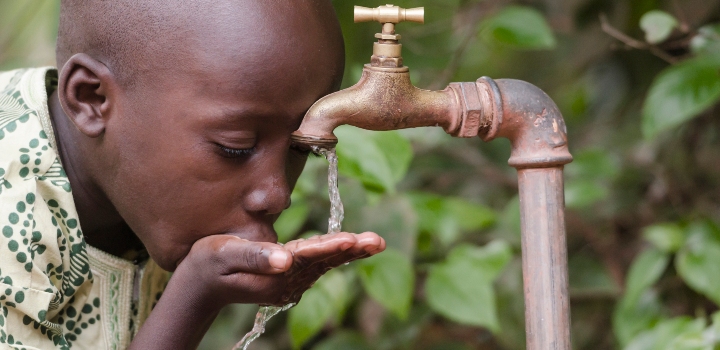World Water Day spotlight on UEA’s water security research centre
By: Communications

From adapting to climate change and tackling water scarcity to the burden of carrying water faced by millions of people, and particularly women, around the world – a group of UEA researchers are addressing the important and often complex issue of water security.
World Water Day is celebrated annually on March 22, to raise awareness of the global water crisis and this year’s theme is ‘valuing water’.
UEA’s Water Security Research Centre (WSRC) brings together researchers from across the university to address practical and policy challenges of managing and governing water for different human, economic and environmental needs on local and global scales.
The interdisciplinary centre includes researchers from UEA’s School of International Development, the School of Environmental Sciences, Norwich Medical School and the School of Health Sciences. It also draws upon expertise from across the Tyndall Centre for Climate Change Research.
Research activities focus on the social dynamics of water insecurity which affect human health and wellbeing, degrade natural environments and reduce biodiversity – with an emphasis on the existing inequalities and underlying drivers of exclusion from access to water that must be addressed to improve water security around the globe.
Research themes covered include water resources management and the challenges of hydroelectric dams, access to water, sanitation and hygiene facilities (WaSH) in a range of settings for health and infection prevention and control, water politics and transboundary water diplomacy, and adapting to climate change and water related hazards or risks.
Watch: Thinking Without Borders - Water
Director Dr Jo-Anne Geere said: “The value of water is about much more than its price – water has enormous and complex value for our health, dignity, wellbeing, food, culture, education, economics and the integrity of our natural environment.
“Water security is about much more than the material properties of water, such as its quality, quantity and price and technical aspects of water delivery – it is about challenging and changing the social and political processes that secure access to safe and affordable water for some people and uses, and not for others.
“If we overlook any of these values, and ignore the social and political drivers of water insecurity, we risk mismanaging this finite, irreplaceable resource. Indeed water security links to most of the United Nations Sustainable Development Goals, including water and sanitation for all by 2030 (SDG 6).
“Without a comprehensive understanding of water’s true, multidimensional value, and how to engage with social and political processes that foster water security, we will be unable to safeguard this critical resource for the benefit of everyone.
“Here at UEA’s Water Security Research Centre, we focus on the need to understand the social, political and physical drivers and dynamics of contemporary global water challenges, and to recognise the multiple uses and benefits of water that need to be managed in any context.
“Water security is intricately connected to critical global policy concerns, including safe drinking water provision, climate change, food security, energy generation and environmental protection.
“Our team carries out research and consultancy, teaching and training, and outreach and policy engagement to increase awareness of water security issues and to bring about positive change.”
Watch: Does the world have enough water?
Related Articles

The dangers of collecting drinking water
Collecting drinking water in low and middle income countries can cause serious injury, particularly for women, according to new research from the University of East Anglia.
Read more